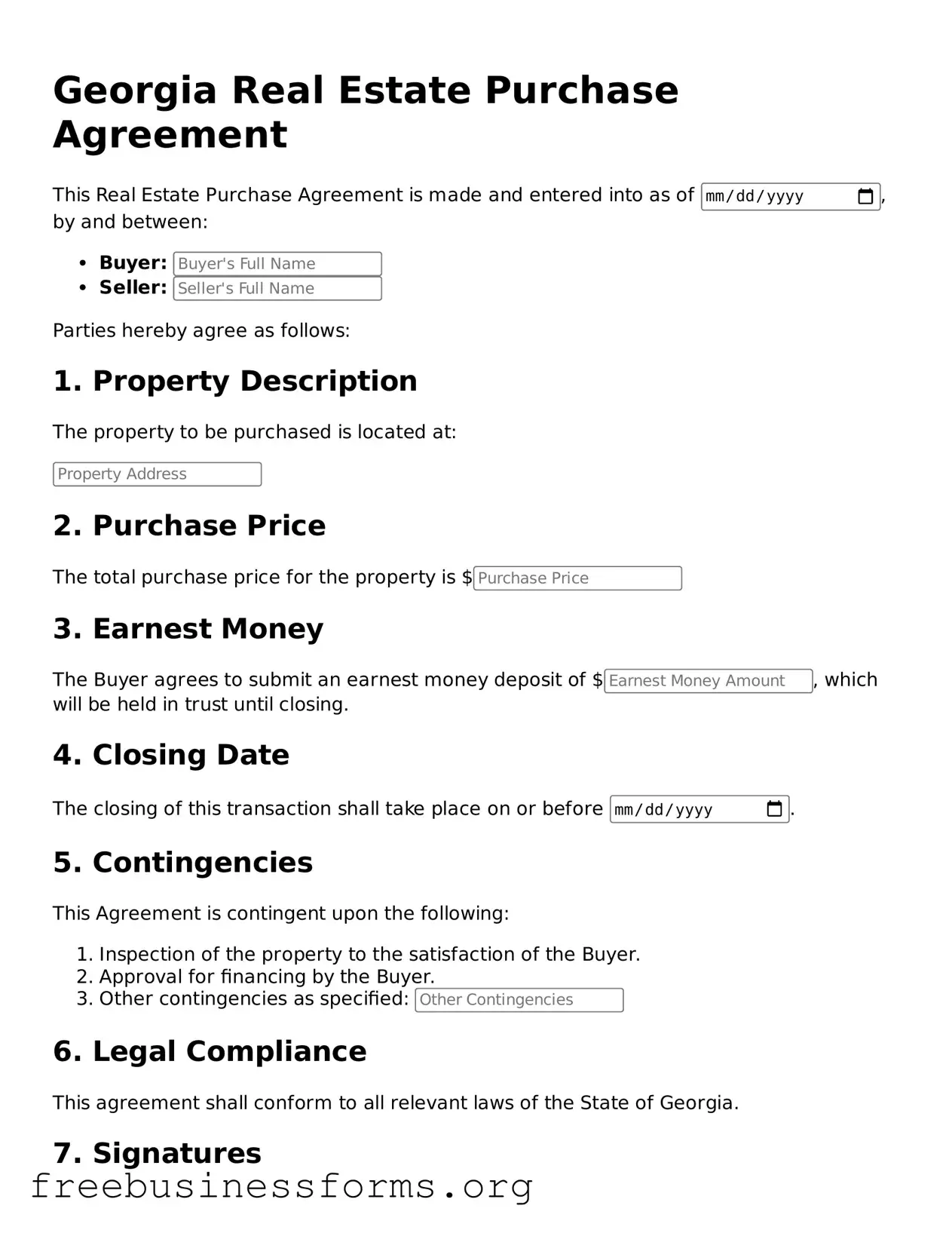Blank Real Estate Purchase Agreement Template for Georgia
The Georgia Real Estate Purchase Agreement is a legal document that outlines the terms and conditions under which a buyer agrees to purchase property from a seller. This agreement serves as a crucial tool in the real estate transaction process, ensuring that both parties understand their rights and obligations. By clearly defining the specifics of the sale, the agreement helps to facilitate a smooth transfer of ownership.
Open Form Here

Blank Real Estate Purchase Agreement Template for Georgia
Open Form Here

Open Form Here
or
↓ PDF File
Quickly complete this form online
Complete your Real Estate Purchase Agreement online quickly — edit, save, download.